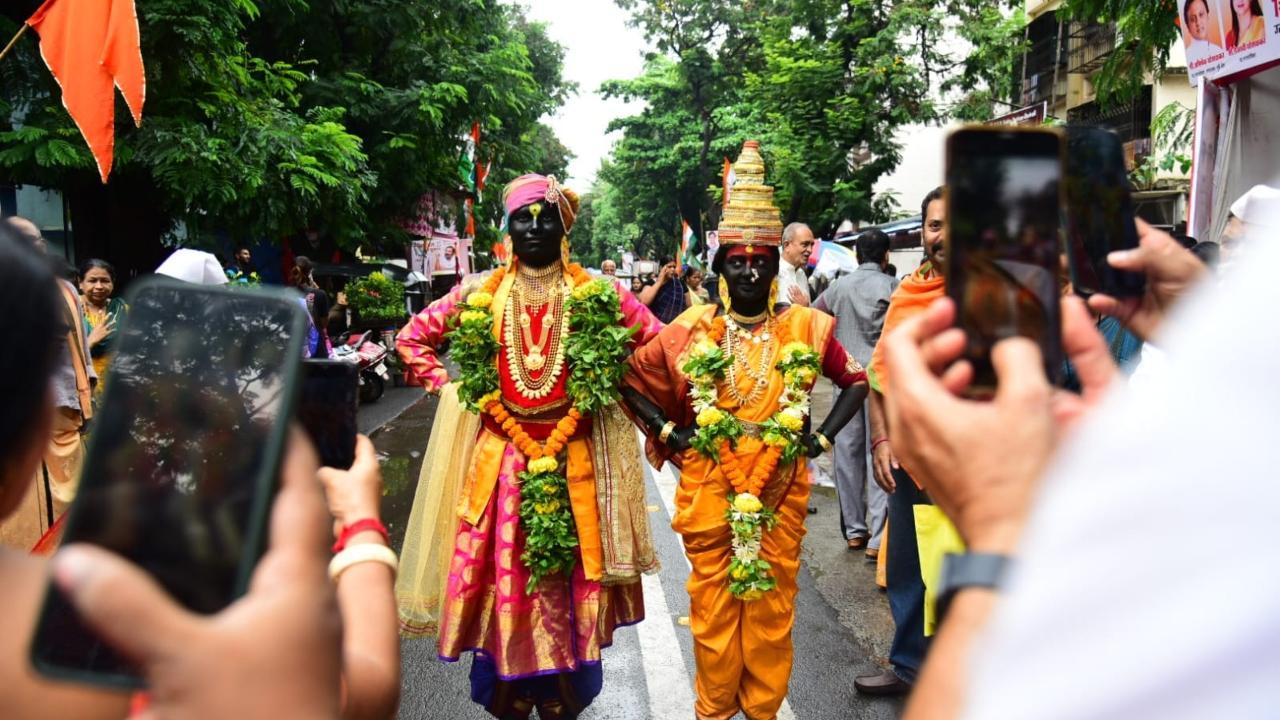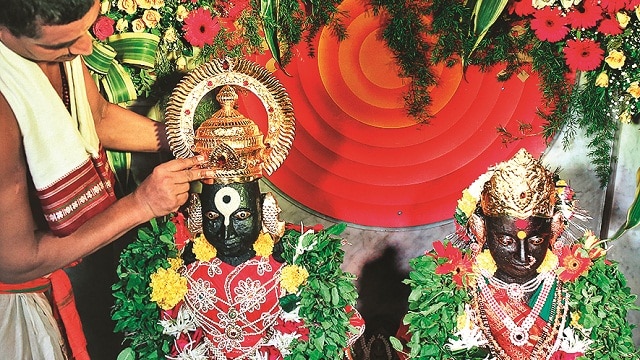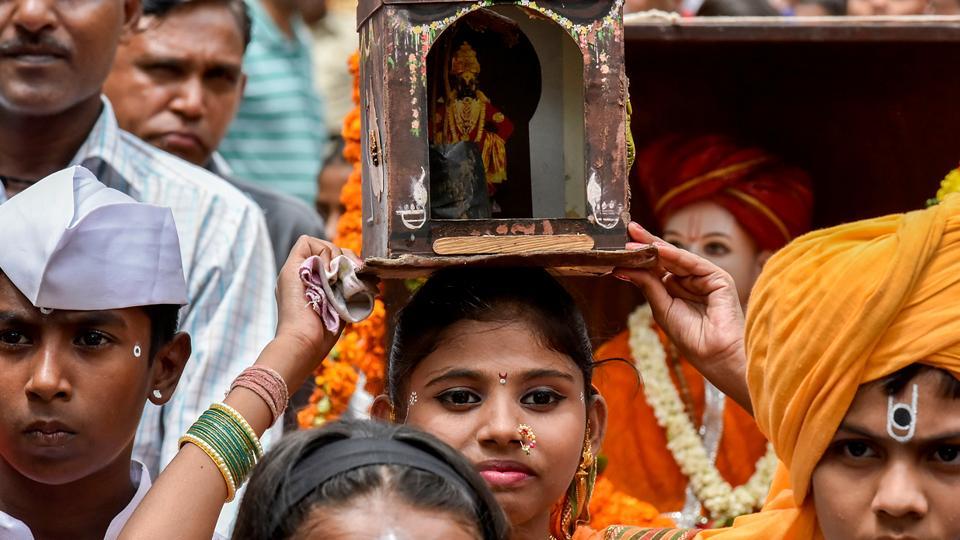Observing Ekadashi In 2026: A Guide For Mumbai Devotees
Observing Ekadashi in 2026: A Guide for Mumbai Devotees
Related Articles: Observing Ekadashi in 2026: A Guide for Mumbai Devotees
Introduction
In this auspicious occasion, we are delighted to delve into the intriguing topic related to Observing Ekadashi in 2026: A Guide for Mumbai Devotees. Let’s weave interesting information and offer fresh perspectives to the readers.
Table of Content
Observing Ekadashi in 2026: A Guide for Mumbai Devotees
Ekadashi, the eleventh lunar day of each fortnight in the Hindu calendar, holds immense significance in Vaishnavism. It is dedicated to Lord Vishnu, the preserver of the universe, and is observed with fasting, devotional practices, and the recitation of scriptures. For devotees of the International Society for Krishna Consciousness (ISKCON), Ekadashi presents a special opportunity to deepen their spiritual connection.
This article provides a comprehensive guide to Ekadashi observance in Mumbai for the year 2026, focusing on the calendar, significance, benefits, and practical aspects of the fast.
The 2026 Ekadashi Calendar for Mumbai:
The following table outlines the Ekadashi dates for 2026 in Mumbai, adhering to the Panchang (Hindu calendar) and considering the specific time zones and regional variations:
| Month | Ekadashi Name | Date | Time of Commencement | Time of Conclusion |
|---|---|---|---|---|
| January | Pausha Putrada Ekadashi | January 10 | 04:32 AM | January 11, 06:48 AM |
| January | Pausha Putrada Ekadashi | January 25 | 05:54 AM | January 26, 08:12 AM |
| February | Magha Ekadashi | February 9 | 06:57 AM | February 10, 09:27 AM |
| February | Magha Ekadashi | February 24 | 08:03 AM | February 25, 10:39 AM |
| March | Phalguna Ekadashi | March 11 | 09:07 AM | March 12, 11:58 AM |
| March | Phalguna Ekadashi | March 26 | 10:09 AM | March 27, 1:27 PM |
| April | Chaitra Ekadashi | April 10 | 11:08 AM | April 11, 3:00 PM |
| April | Chaitra Ekadashi | April 25 | 12:04 PM | April 26, 4:37 PM |
| May | Vaisakha Ekadashi | May 10 | 01:00 PM | May 11, 6:16 PM |
| May | Vaisakha Ekadashi | May 25 | 02:00 PM | May 26, 8:00 PM |
| June | Jyeshta Ekadashi | June 9 | 02:57 PM | June 10, 9:51 PM |
| June | Jyeshta Ekadashi | June 24 | 03:54 PM | June 25, 11:41 PM |
| July | Ashadha Ekadashi | July 10 | 04:50 PM | July 11, 1:37 AM |
| July | Ashadha Ekadashi | July 25 | 05:46 PM | July 26, 3:35 AM |
| August | Shravana Ekadashi | August 9 | 06:42 PM | August 10, 5:32 AM |
| August | Shravana Ekadashi | August 24 | 07:37 PM | August 25, 7:31 AM |
| September | Bhadrapada Ekadashi | September 8 | 08:31 PM | September 9, 9:30 AM |
| September | Bhadrapada Ekadashi | September 23 | 09:26 PM | September 24, 11:31 AM |
| October | Ashwin Ekadashi | October 8 | 10:21 PM | October 9, 1:34 PM |
| October | Ashwin Ekadashi | October 23 | 11:16 PM | October 24, 3:39 PM |
| November | Kartik Ekadashi | November 7 | 12:10 AM | November 8, 5:45 PM |
| November | Kartik Ekadashi | November 22 | 01:04 AM | November 23, 7:53 PM |
| December | Margashira Ekadashi | December 7 | 01:59 AM | December 8, 9:59 PM |
| December | Margashira Ekadashi | December 22 | 02:54 AM | December 23, 12:07 AM |
Significance of Ekadashi:
Ekadashi holds profound significance in Vaishnavism, rooted in ancient Hindu scriptures like the Bhagavata Purana and Vishnu Purana. The fasting and devotional practices are believed to cleanse the mind and body, purify the soul, and bring the devotee closer to Lord Vishnu.
- Spiritual Elevation: Ekadashi fasting is considered a potent spiritual practice that helps devotees transcend material desires and connect with the divine.
- Attaining Moksha: Observing Ekadashi with devotion is believed to pave the path towards liberation from the cycle of birth and death (moksha).
- Favor of Lord Vishnu: Ekadashi is dedicated to Lord Vishnu, and fasting on this day is seen as an act of reverence and devotion, seeking his blessings and grace.
- Prosperity and Well-being: Ekadashi is also associated with material benefits, including prosperity, health, and long life.
Benefits of Observing Ekadashi:
The benefits of observing Ekadashi extend beyond the spiritual realm, encompassing physical, mental, and emotional well-being.
- Physical Detoxification: The fast encourages a break from heavy meals and stimulates the body’s natural cleansing process.
- Mental Clarity: The fasting and devotional practices promote mental clarity, focus, and inner peace.
- Emotional Balance: Ekadashi provides an opportunity for introspection and self-reflection, fostering emotional stability and resilience.
- Increased Energy: The fasting regime can lead to increased energy levels and vitality.
Practical Aspects of Observing Ekadashi in Mumbai:
- ISKCON Temples in Mumbai: ISKCON temples in Mumbai offer a supportive environment for observing Ekadashi. Devotees can participate in devotional programs, receive guidance from priests, and engage in community chanting and prayers.
- Food Restrictions: The Ekadashi fast involves abstaining from grains, pulses, and certain fruits and vegetables. ISKCON temples typically offer alternative meals and snacks for devotees observing the fast.
- Time Considerations: The commencement and conclusion times of the fast may vary slightly depending on the specific Ekadashi and the location in Mumbai. It is advisable to consult the Panchang or ISKCON temple for accurate timings.
- Devotee Support: ISKCON temples in Mumbai provide resources and support for devotees, including pamphlets, online information, and guidance from priests.
FAQs Regarding Ekadashi Observance in Mumbai:
Q: What are the specific food restrictions during Ekadashi?
A: The Ekadashi fast typically involves abstaining from grains (rice, wheat, etc.), pulses (lentils, beans), and certain fruits and vegetables (such as potatoes, onions, and garlic). Devotees can consume fruits like apples, bananas, and berries, along with milk and nuts.
Q: What are the recommended devotional practices during Ekadashi?
A: Devotees can engage in various devotional practices, including chanting Hare Krishna mahamantra, reading scriptures like Bhagavad Gita and Bhagavata Purana, attending temple programs, and offering prayers to Lord Vishnu.
Q: Can anyone observe Ekadashi?
A: While Ekadashi fasting is generally recommended for healthy individuals, pregnant women, children, and elderly people may choose to observe the fast with modifications. It is advisable to consult with a priest or doctor for guidance.
Q: What are the benefits of observing Ekadashi in a group setting?
A: Observing Ekadashi with fellow devotees in an ISKCON temple provides a supportive environment, fosters a sense of community, and enhances the devotional experience.
Tips for Observing Ekadashi in Mumbai:
- Plan Ahead: Plan your meals and activities in advance to ensure you have the necessary resources and support for the fast.
- Seek Guidance: Consult with a priest or experienced devotee for guidance on the specific rituals and practices.
- Stay Hydrated: Drink plenty of water and fluids throughout the fast.
- Engage in Devotional Practices: Dedicate time for chanting, reading scriptures, and offering prayers.
- Maintain a Positive Mindset: Focus on the spiritual benefits of the fast and maintain a positive and peaceful attitude.
Conclusion:
Observing Ekadashi in Mumbai offers devotees a unique opportunity to deepen their spiritual connection with Lord Vishnu, cleanse their bodies and minds, and experience the transformative power of devotional practices. The ISKCON temples in Mumbai provide a supportive environment, resources, and guidance for devotees. By adhering to the calendar, understanding the significance and benefits, and engaging in devotional practices, devotees can make their Ekadashi observance a meaningful and enriching experience.








Closure
Thus, we hope this article has provided valuable insights into Observing Ekadashi in 2026: A Guide for Mumbai Devotees. We thank you for taking the time to read this article. See you in our next article!